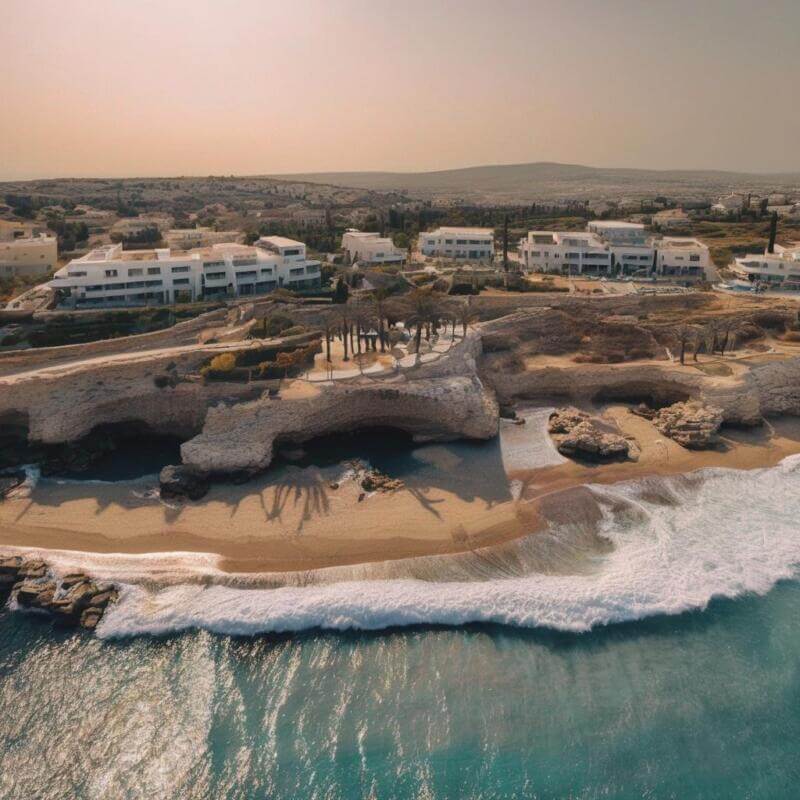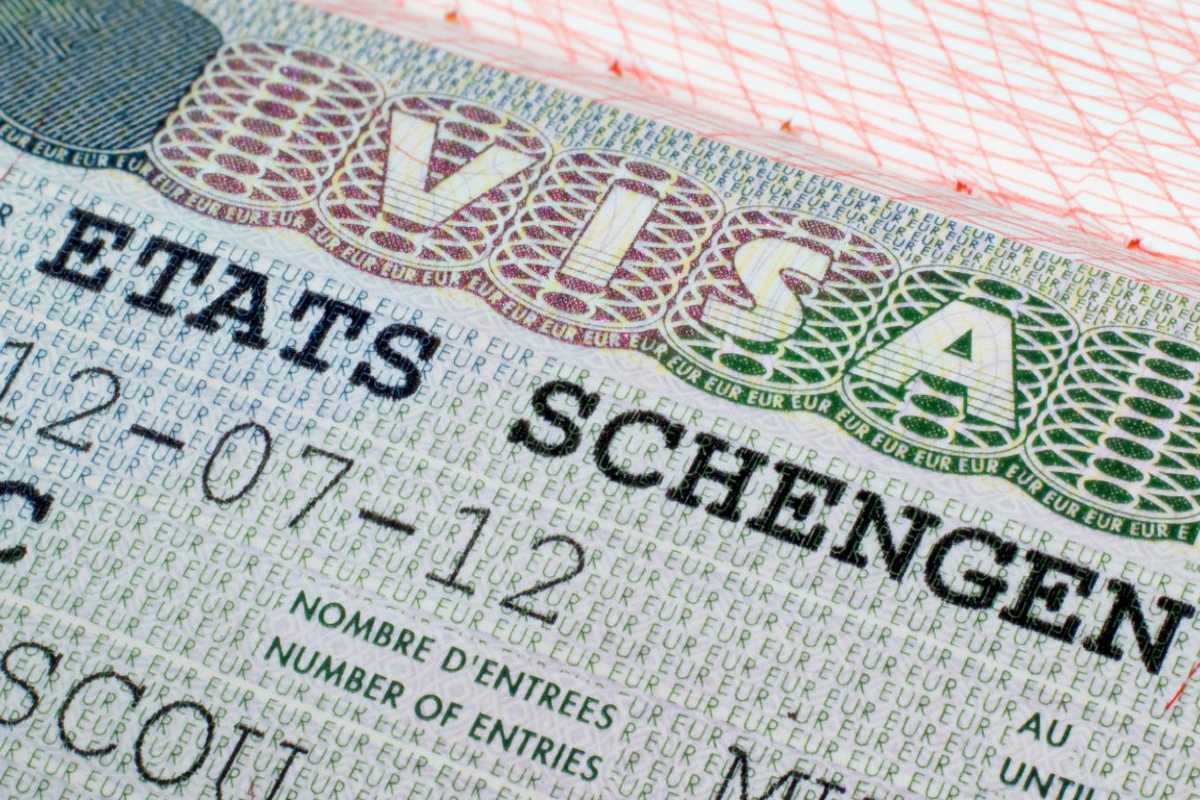Last Updated on 19/08/2025
Title Deed in Cyprus: What You Need to Know (2025 Guide)
Whether you’re considering buying a vacation home, relocating permanently, or investing in property, understanding title deeds in Cyprus is critical. Known locally as the “Tabu,” a title deed is the legal document that proves ownership of land and buildings. Without one, you’re not the rightful owner—no matter how much you’ve paid.
In this 2025 guide, we’ll walk you through the essentials: how Cyprus title deeds work, what the law says, how to transfer them, what fees to expect, and what risks to avoid. We’ll also highlight recent legal updates, explain how to conduct a due diligence search, and offer a downloadable checklist at the end.
What Is a Cyprus Title Deed?
A Cyprus title deed (often referred to as a “Tabu”) is an official government-issued certificate confirming who owns a particular piece of real estate. Every registered parcel of land in the Republic of Cyprus is recorded with the Department of Lands and Surveys (DLS)—the national authority responsible for maintaining and updating these ownership records.
Each title deed contains essential information, including:
The owner’s name(s)
Property boundaries and map references
The type of property (land, apartment, house, etc.)
Encumbrances, such as mortgages, liens, long-term leases, or legal disputes
Historical ownership and registration data
If any of these fields are incorrect or outdated, the legal transfer of ownership can become complicated—or even blocked.
Legal Basis & Property Law
Cyprus operates under a property law system influenced by English common law, which brings structure, reliability, and international confidence. The key pieces of legislation include:
Cap. 224 – Immovable Property (Tenure, Registration and Valuation) Law
Law 9/65 – Transfer and Mortgage of Immovable Property
Law 81(I)/2011 – Sale of Immovable Property (Specific Performance)
Law 132(I)/2023 – Latest update requiring sellers to provide a recent land registry search certificate
These laws ensure that a title deed reflects not just current ownership but also the legal and financial history of the property.
Why Title Deeds Matter
A title deed is more than a simple piece of paper—it’s the foundation of property ownership in Cyprus. Without a valid and properly issued title deed, you cannot legally transfer, mortgage, or inherit the property. In many cases, it also affects your access to utilities, building permits, and even the resale value of the property.
Buyer Protection: How Title Deeds Safeguard Your Investment
When purchasing property in Cyprus, having a title deed in place ensures:
Clear Legal Ownership – Your name is officially registered with the Department of Lands and Surveys (DLS).
Transferable Rights – You can sell, lease, or mortgage the property without legal roadblocks.
Protection Against Fraud – A valid title deed prevents others from claiming interest in your property.
Bank Financing Options – Most banks require a title deed to issue a mortgage.
In short, the title deed is your ultimate proof that you own the land or building, free from hidden claims or disputes.
Legal Risks of Buying Without a Title Deed
Despite the risks, many buyers in Cyprus—especially of new-build properties—enter contracts where a title deed has not yet been issued. This is common when developers are still formalizing land subdivisions or awaiting a Certificate of Final Approval (CFA) from the local authority.
Here’s what could go wrong:
Pending Mortgages or Liens – If the developer has debts, your ownership may be challenged.
Court Restrictions – Legal disputes can freeze the title issuance process.
Delay in Transfer – Without the final deed, the property can’t legally change hands.
Loss of Money – If something goes wrong and no title is issued, your investment may be unrecoverable.
Recent Legal Safeguards: Law 132(I)/2023
To address these concerns, Cyprus introduced Law 132(I)/2023, which now obligates sellers to provide a 5-day Search Certificate from the Land Registry when entering into a Contract of Sale. This gives buyers up-to-date information on:
Outstanding loans or court orders
Pending encumbrances or co-owners
Land-use limitations
This certificate must be attached to the sale agreement and is enforceable in court.

How to Obtain or Transfer a Title Deed in Cyprus
Whether you’re buying a brand-new apartment, a resale home, or land in Cyprus, the process of obtaining or transferring a title deed follows a formal legal structure. The steps vary depending on the type of transaction—either new-build or resale—but both require careful documentation and coordination with the Department of Lands and Surveys (DLS).
New-Build Properties: From Developer to Buyer
When buying a new development (especially off-plan), the title deed may not yet exist in the buyer’s name. Here’s how the process works:
Final Approval by Municipality
The developer must obtain a Certificate of Final Approval (CFA), confirming the building complies with planning and safety regulations.Division and Registration
The land is officially subdivided and recorded with the Land Registry. Individual title deeds are then issued for each unit.Transfer of Title to Buyer
Once issued, the buyer (or their lawyer) files a request to transfer the deed into their name. The buyer must confirm that the purchase contract was previously deposited with the Land Registry (a required step under Cypriot law).
🛑 Important: The process may take months—or even years—if the developer delays submission of plans or has unresolved financial obligations.
Resale Properties: A More Direct Route
For existing properties with an already-issued title deed, the transfer process is faster and more secure:
Contract of Sale
Buyer and seller sign a formal sale agreement. This must be deposited with the DLS within 6 months of signing to secure the buyer’s rights.Tax Clearance & Fee Settlement
The seller must obtain a tax clearance certificate proving no debts or unpaid charges exist. Both parties settle transfer fees, stamp duty, and any outstanding property taxes.Official Transfer
Both parties (or their authorized attorneys) attend the Land Registry office to sign the transfer application.
Forms N270 and N313 are typically filed here.Issuance of New Title Deed
Upon approval, a new title deed is printed in the buyer’s name.
⏱ Timeline: For resale deals, the entire process usually takes 2 to 6 months, depending on documentation, tax clearance, and registry backlog.
Transfer Fees, VAT & Exemptions in 2025
When buying real estate in Cyprus, understanding the applicable taxes and fees is just as important as verifying legal ownership. One of the biggest financial components of a property transfer is the Transfer Fee, which is charged by the Department of Lands and Surveys (DLS) to officially move the title deed into your name.
Transfer Fee Rates (2025)
The Transfer Fee is calculated based on the government-assessed market value of the property—not necessarily the purchase price in your contract. The rates are progressive:
| Property Value (€) | Transfer Fee Rate |
|---|---|
| Up to €85,000 | 3% |
| €85,001 to €170,000 | 5% |
| Above €170,000 | 8% |
Let’s say you’re purchasing a property valued at €250,000:
First €85,000 → €2,550 (3%)
Next €85,000 → €4,250 (5%)
Remaining €80,000 → €6,400 (8%)
Total Transfer Fee = €13,200
Discounts & Exemptions
The Cyprus government has introduced several exemptions and discounts to incentivize both domestic and foreign property investment:
✅ 50% Reduction on Resales
If you’re purchasing from a private seller (not a developer) and no VAT was charged on the original sale, you are entitled to a 50% discount on the total transfer fee. This applies under DLS Fee Regulation Chapter 219.
✅ Full Exemption for New Properties with VAT
If the property is subject to Value Added Tax (VAT)—typically charged at either 5% (first-time buyers) or 19% (standard rate)—you are fully exempt from paying transfer fees.
🔍 Tip: If you’re buying from a developer, check whether VAT is included. If yes, you could save thousands on transfer fees.
Other Charges to Consider
Stamp Duty – Charged at 0.15% to 0.20% of the contract value.
Legal Fees – Usually 1% to 2% of the purchase price, depending on the complexity.
Search Certificate Fees – Nominal cost for Land Registry due diligence.
How to Conduct a Due Diligence Search Before Buying
No matter how trustworthy the seller or how new the property looks, performing legal due diligence is a non-negotiable step before purchasing real estate in Cyprus. This is the only way to confirm that the title deed exists, the seller has legal rights to sell, and there are no hidden financial or legal burdens attached to the property.
Search Certificate from the Land Registry
The cornerstone of the due diligence process is the Search Certificate, which must be obtained from the Department of Lands and Surveys (DLS). This document provides a snapshot of the property’s legal status, including:
Current registered owner
Mortgages or loans secured on the property
Court orders or encumbrances
Long-term leases or rights of use
Co-ownership or inheritance claims
Thanks to Law 132(I)/2023, this certificate is now a mandatory part of the Contract of Sale. Sellers must provide a certificate issued within the last 5 business days prior to signing, ensuring buyers have up-to-date legal transparency.
How to Obtain the Certificate
There are two main ways to obtain a Search Certificate:
A. Via Your Lawyer
Most property buyers authorize their legal representative to request the document. Your lawyer will:
Apply at the local District Land Registry
Pay a nominal fee
Receive the certificate within a few working days
Interpret and explain any encumbrances or red flags
B. DIY Request (Less Common)
While it’s legally possible to apply yourself, the process is slower and requires:
Submitting the official application in person
Providing proof of identity and property details
Paying the fee and collecting the result manually
⚠️ Note: Unless you’re fluent in Greek and familiar with legal documents, the DIY route is not recommended.
3. DLS Portal & Online Access
While the DLS Portal does offer certain online services (like cadastral maps and basic property info), full legal documents—especially certified search certificates—still require in-person handling or an authorized account. Only licensed professionals (lawyers, surveyors, etc.) can retrieve this data digitally.
What If the Property Doesn’t Have a Title Deed?
It may sound surprising, but tens of thousands of properties in Cyprus—especially in new developments—still don’t have issued title deeds. In such cases, you’re not buying the property itself but rather the right to acquire it once the deed becomes available. While this type of transaction is legal, it comes with additional risks that require strict legal safeguards.
Why Might a Title Deed Be Missing?
There are several legitimate reasons a property might not yet have a title deed:
🏗️ Pending Final Approval – The building hasn’t yet received a Certificate of Final Approval (CFA) from the local authority.
💰 Developer Debts – The property may be tied to a mortgage or lien placed by a lender.
⚖️ Legal Disputes – There may be unresolved court decisions involving the land or developer.
🗂️ Subdivision Delays – The project hasn’t been divided or registered into individual units.
These issues don’t necessarily make the purchase illegal—but they do raise the stakes.

Can You Still Buy the Property? Yes, But...
If you’re determined to proceed, you must take the following precautions:
Hire a Specialized Real Estate Lawyer
Do not rely on the seller’s legal team. Your lawyer must conduct an independent investigation to understand why the deed is missing.Deposit the Contract of Sale Promptly
Under Cyprus law, you must lodge your signed contract with the Land Registry within 6 months of signing. This creates a “cautionary note” on the property, blocking others from registering conflicting claims.Secure a Developer Release
If the property is mortgaged, the developer’s bank must issue a waiver of claim to ensure your purchase won’t be affected by their debt.Get Everything in Writing
Include protective clauses in your contract, such as:Delivery timeline for the title deed
Legal remedies if delays exceed a set period
Conditions for refund or cancellation
⚠️ Important: You do not become the legal owner until the deed is issued and transferred to your name.
Government Help: Trapped Buyers Scheme
Cyprus has enacted legislation to help “trapped buyers” obtain title deeds even if developers face financial or legal problems. However, these cases take years to resolve and are no substitute for proper due diligence.
New-Build vs. Resale: Comparison Table
When purchasing property in Cyprus, one of the most important decisions is whether to buy a new-build or a resale property. Each path involves a different title deed process, documentation, timeline, and financial risk. Below is a side-by-side comparison to help you make an informed choice:
🏠 New-Build vs. Resale Property in Cyprus
| Feature | New-Build Property | Resale Property |
|---|---|---|
| Title Deed Status | Often not yet issued; depends on developer finalizing process | Usually already issued and registered |
| Certificate of Final Approval (CFA) | Required before title can be issued | Already completed |
| Transfer Time | 6 months to several years depending on developer | Typically 2–6 months |
| Legal Safeguards Needed | Strong contract, deposit lodging, developer waiver if mortgaged | Contract of Sale + tax clearance + title transfer |
| Transfer Fees | Often exempt if VAT paid (5% or 19%) | 50% discount if private sale with no VAT |
| Risk Level | Higher—buyer depends on third-party actions (developer, DLS) | Lower—ownership is already formalized |
| Due Diligence Focus | Developer reputation, mortgage releases, planning approvals | Encumbrances, ownership history, co-owner consent |
| Ideal for | Buyers seeking modern layouts, new amenities | Buyers prioritizing ownership clarity and faster transfer |
Key Takeaways
If legal security and ownership speed are your top concerns, resale properties offer a more straightforward and lower-risk path.
If you’re buying a new-build, make sure your lawyer performs deep due diligence, especially on the developer’s financial obligations and project approvals.
FAQs About Cyprus Title Deeds
To wrap up this guide, here are answers to some of the most frequently asked questions about title deeds in Cyprus. These plain-English explanations are designed to help buyers feel more confident and avoid costly mistakes.
Yes, but it comes with risks. You are not the legal owner until the deed is issued in your name. You must deposit the Contract of Sale at the Land Registry and work closely with a lawyer to protect your position. Proceed only if your lawyer has thoroughly investigated the situation.
New-builds: Can take from 6 months to several years, depending on the developer’s paperwork and approvals.
Resales: Usually completed within 2 to 6 months, assuming taxes and fees are settled.
The title deed contains:
Owner’s name(s)
Property description and boundaries
Unique registration number
Historical ownership chain
Encumbrances such as mortgages, leases, or liens
Any court rulings or restrictions affecting the property
If the seller (or developer) has an outstanding mortgage, they must obtain a release letter or waiver from their lender. Without this, the bank could block the transfer or even reclaim the property.
Not necessarily. Many properties—especially new developments—do not yet have individual title deeds issued. This is due to planning approvals, developer delays, or pending subdivision of the land.
Failing to deposit the contract within 6 months means you lose legal protection under Cyprus’s Specific Performance Law. This could allow the seller to resell the property or cause legal complications later.
Yes. All immovable property—including plots, fields, and farmland—requires a title deed issued by the DLS.
Final Thoughts & Next Steps
Whether you’re a first-time buyer or a seasoned investor, navigating title deeds in Cyprus is a crucial step toward securing your property with confidence. From understanding legal protections to calculating transfer fees, the process is manageable—with the right support.
At Keynote Assets, we specialize in guiding foreign buyers through every legal, financial, and regulatory step of real estate in Cyprus. We work closely with trusted local lawyers, accountants, and municipal contacts to ensure your transaction is transparent, protected, and fully compliant with 2025 regulations.


Ready to invest in Cyprus with confidence?
Let Keynote Assets guide you—from identifying high-yield Paphos properties to handling everything through the land registry and legal paperwork. Leave us your details and we’ll be in touch promptly to walk you through every step.




